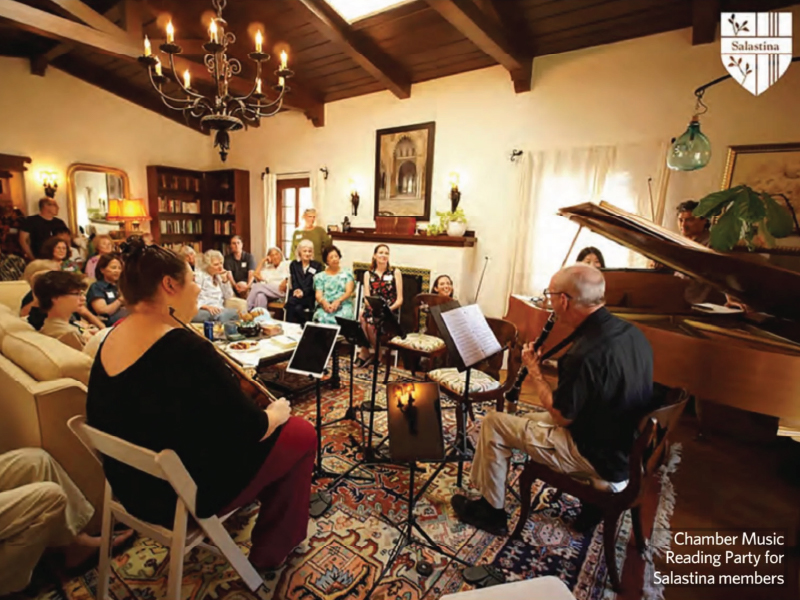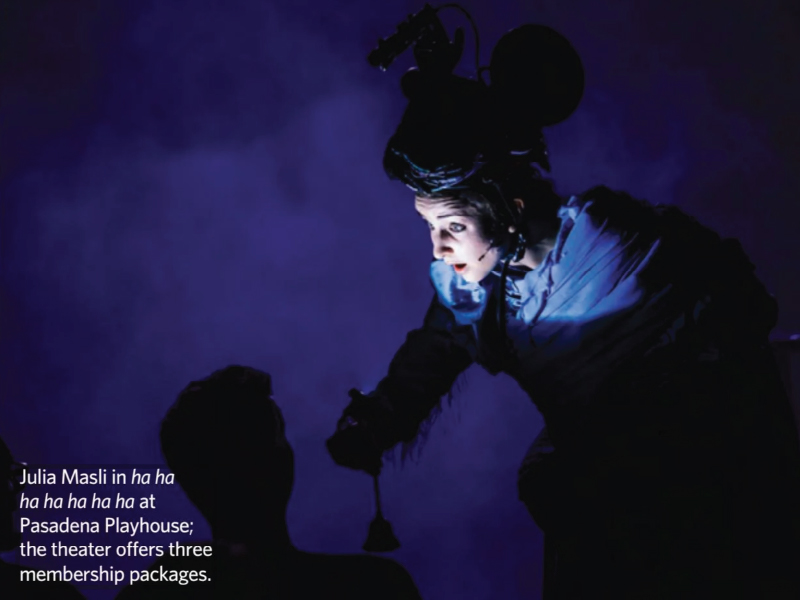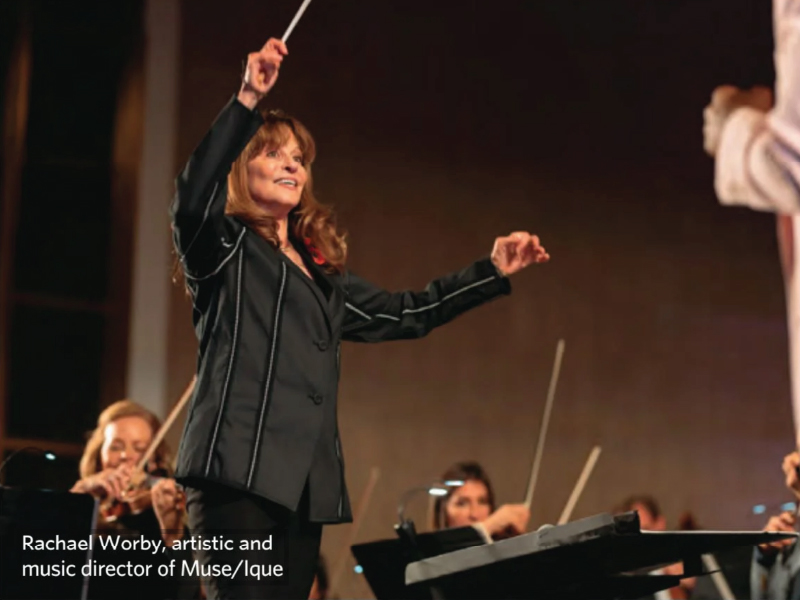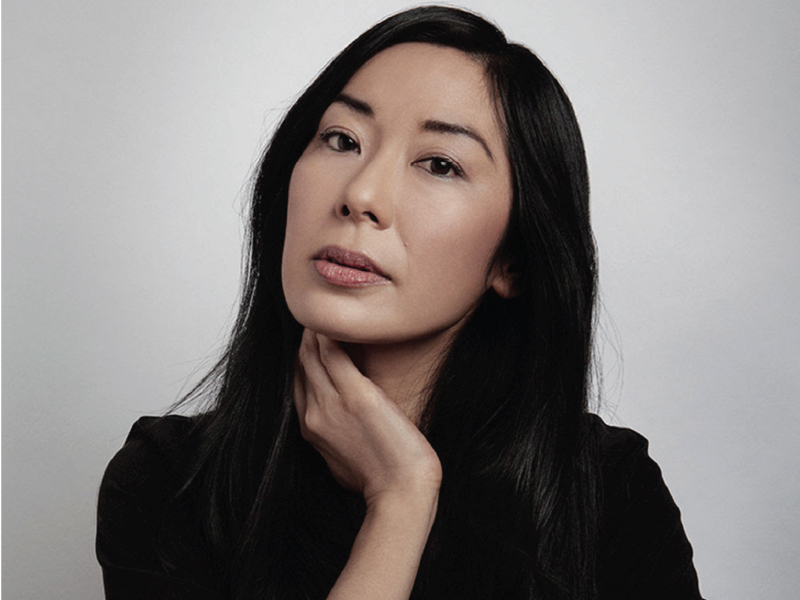Written by LIBBY SLATE

When patrons become members of performing arts companies and venues, deeper relationships are just one of the benefits. One Sunday afternoon this past September, about 50 people gathered at the home of violinist Maia Jasper White, co-founder and co-artistic director with violinist Kevin Kumar of the chamber music ensemble Salastina.
Some were resident artists of the group; most were patrons in Salastina’s membership program, accompanied by their guests.
During the four-hour event—which included three cakes that White had baked and a wine-cheese-fruit-andcrackers spread—10 of those members, one at a time, joined the Salastina musicians to perform a chamber work of the member’s choosing.
The high-spirited day of camaraderie and connection, known as the Chamber Music Reading Party, was an exclusive benefit of being a Salastina member. It afforded amateur musicians the chance to play such pieces as a Mendelssohn piano trio and the Schubert cello quintet alongside professionals.

“It’s a very casual, fun, sweet event,” White says. “In a way, it’s a very pure execution of our mission— to invite the audience into our artistic space and recreate the chamber music salon of yore for our time. They get so much out of it—and it helps us, too, when we look out into the audience [at concerts] and we see these people.
“It’s like, ‘Hey, there’s Randy. He played the Brahms Hungarian Dance, and now he’s watching us play.’ There’s something really reciprocal about it.” As a familiar credit-card ad slogan says, membership has its privileges.
That sentiment extends to the performing arts, where an increasing number of musical and theater and support various company programs. In general, there are two membership formats. One provides tickets as part of a monthly or annual membership fee as well as perks; the other offers benefits including discounts on tickets purchased separately.
Salastina was founded in 2010 and launched its membership program eight years later. The program started out including tickets but later switched to the discount option.
“We found that our members didn’t actually care that much about the tickets,” White says. “They just wanted to make a donation and feel like we valued that.” And, she adds, the discount method is easier for ticket management.
Other membership benefits, depending on the financial level, include priority seating at concerts, guest passes, attendance at dress rehearsals, and free access to livestreamed concerts and archived programs. Membership fees cover the cost of tuition for Salastina’s young composers program and support virtual musical bedside visits to patients at a Pasadena hospital.
Another musical ensemble, Muse/Ique, has used various versions of the membership model since its 2011 inception to support its community outreach partnerships and events; the group moved to nearly 100 percent membership for its tickets several years ago.

“It’s a wonderful experience that’s at the core of everything we do,” notes Muse/Ique president and CEO Brian Colburn. “It’s not just an audience strategy. It really is center to the values of the company.”
Muse/Ique’s concerts are primarily themed to empowerment and social justice; they include well-researched commentary by artistic and music director Rachael Worby about how the programmed music has changed history and changed lives.
The ensemble’s nearly 30 community partnerships include schools—for which it offers an educational curriculum—and nonprofit organizations that focus on underserved youth, low-income seniors, people with special needs and families experiencing homelessness, for which it presents specially curated monthly workshops.

All partners receive free concert tickets. We want to work with people who are the least likely to be served by our field,” Colburn says of the nonprofits. “We want to show them how music can help them imagine something brighter for themselves.”
With members receiving free concert tickets for a year, thus removing the burden of selling tickets to fill seats, programming has become more adventurous, Colburn says.
“Membership creates an environment [at concerts] of people who are really hungry for what we do,” he adds. “It’s kind of a trust relationship that we build over time. We find ourselves going deeper and deeper with the music and stories as the membership communicates to us that they’re interested in richer topics.”
Financially higher membership levels receive additional benefits such as VIP seating and parking, complimentary hors d’oeuvres and attendance at community outreach events.
Founded in 1917, the Pasadena Playhouse followed the seasonticket-holder format for a century then switched to the membership model in 2018. The theater offers three packages: the Classic subscription to all five mainstage productions, with same seat and same day of the week for each; the Dynamic, featuring flexible schedule and seats; and FirstLook, offering previews of four shows.
All packages include discounts for additional tickets and Playhouse classes, and free access to member-exclusive and behind-the-scenes events. The Classic remains a traditional season subscription but, says Rachyl Spacca, chief marketing and communications officer, “we still call it a membership. That’s really about a mindset shift that we’re encouraging with all of our members.
Colburn also speaks of Muse/Ique members having a feeling of belonging, and White of members being part of the Salastina family. “We want our patrons to feel part of something greater,” Spacca says, “a community that enjoys something together, versus being a subscriber or season ticket holder, which has more of a connotation of just being a transactional purchase.”
All three say there’s a strong social component to membership. Friendships have formed among members and long-ago lost connections revived. Members attending as groups of friends increase audience energy and enthusiasm.
Pasadena resident Mary Ann Bernath became a Playhouse member with her husband, Michael, following the pandemic; they attend with another couple. This season, the memberfriend group expanded to eight; they meet for dinner before each performance. “I enjoy being a member, because it’s a commitment, and the last few years, [Pasadena Playhouse] has done a tremendous job with their plays,” she says. “You help support the theater as a member.”
The arts entities have not only increased membership numbers over time, but sustained high renewal rates. The trepidation felt in the months and in some cases years of planning the membership-model switch has long been replaced with the glow of success.
“It was scary,” says Colburn of forsaking the long-ingrained practice of ticket sales. “But the payoff has been so much greater than what I could have projected in my wildest fantasy of how well it would work.”
Read the rest at Performances Magazine | La Mirada Theatre, November 2025
Photo credits: Photo courtesy of Performances Magazine | La Mirada Theatre, November 2025



